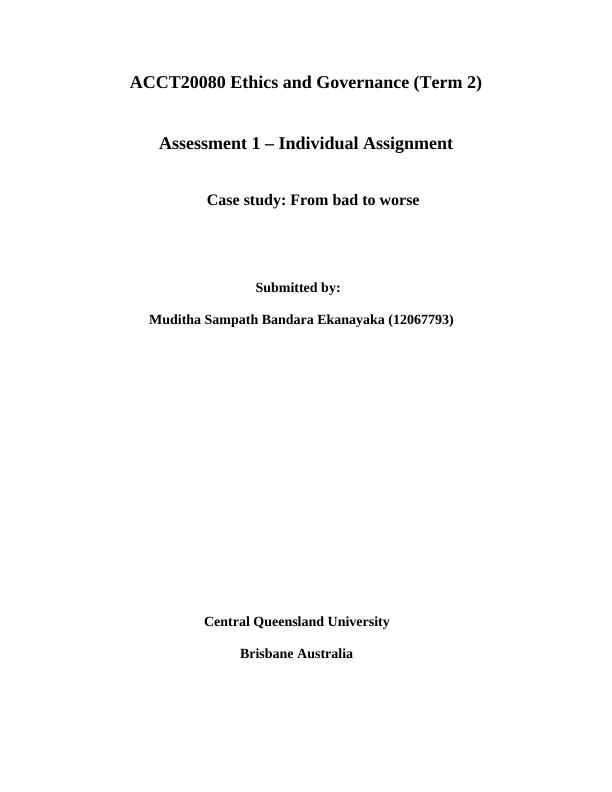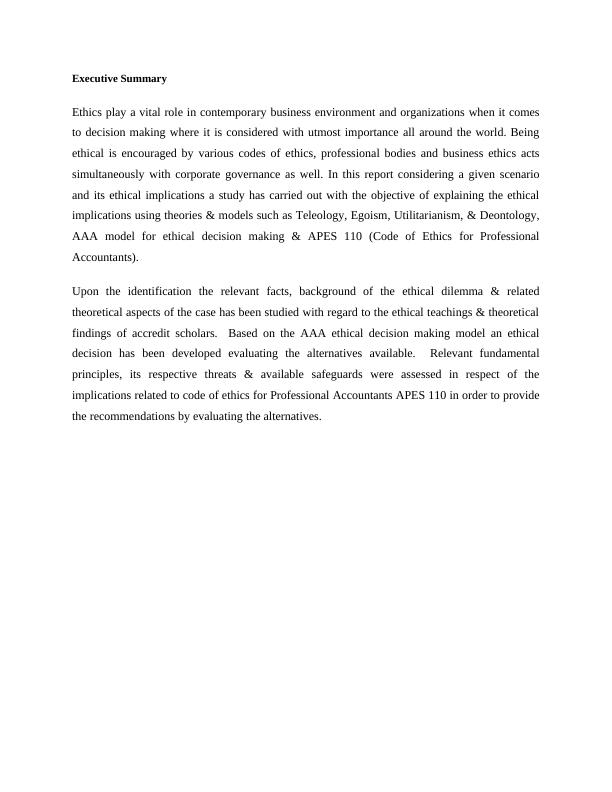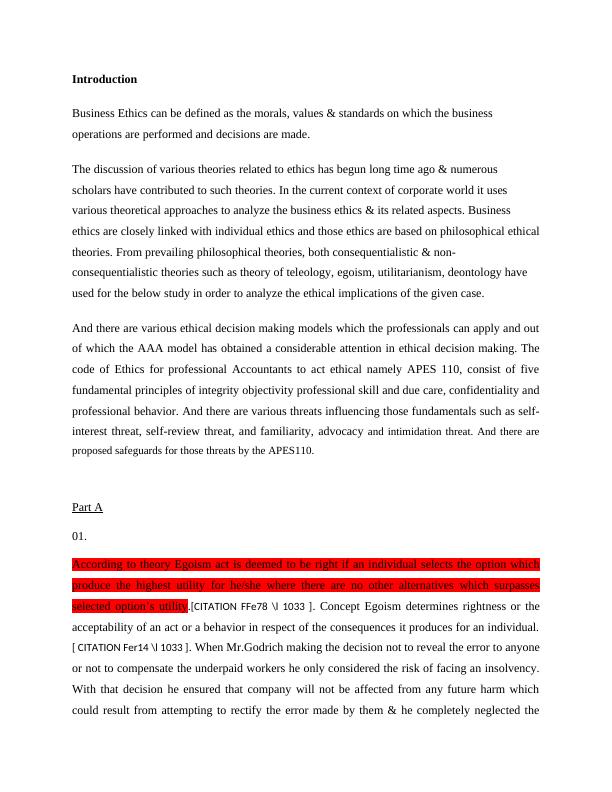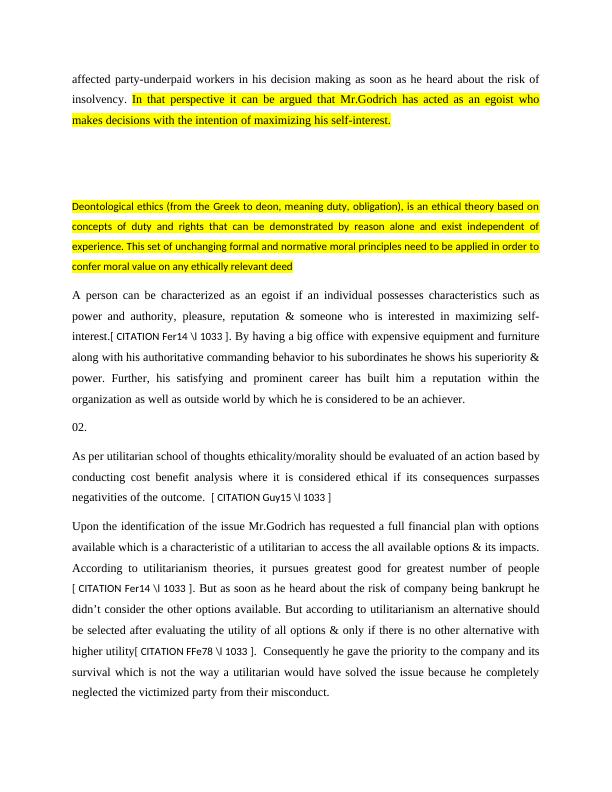Ethics and Governance: Case Study Analysis
13 Pages4130 Words209 Views
Added on 2020-09-29
About This Document
This report discusses the importance of ethics in contemporary business environment and organizations. It analyzes a given scenario and its ethical implications using various theories & models such as Teleology, Egoism, Utilitarianism, & Deontology, AAA model for ethical decision making & APES 110 (Code of Ethics for Professional Accountants). The report also provides recommendations based on the evaluation of alternatives available.
Ethics and Governance: Case Study Analysis
Added on 2020-09-29
ShareRelated Documents
End of preview
Want to access all the pages? Upload your documents or become a member.
Ethics and Governance | Report
|12
|3199
|16
Ethics and Governance | Case Study Report
|14
|3279
|17
Corporate Governance Executive Summary 2022
|16
|3365
|21
Ethics and Governance From Bad to Worse Case Study 2022
|14
|3992
|18
Ethical Australia Case Study 2022
|14
|3640
|23
Ethical Management Australia Report 2022
|14
|3673
|43




